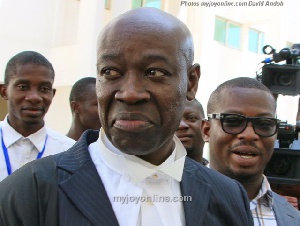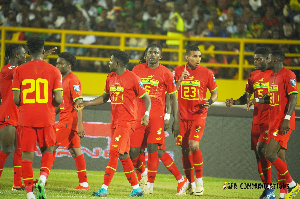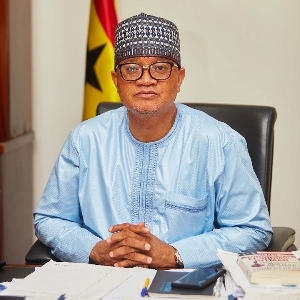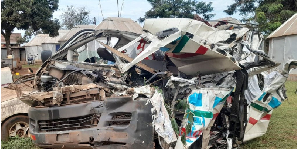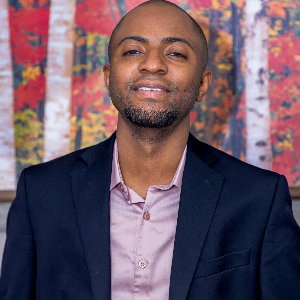Unlike Ghana, in other jurisdictions, especially In the United Kingdom, where I have lived for some time now, obdurate fraudsters, including incompliant public officials, would find themselves in jail and end up losing their acquired wealth to the state.
Take, for instance, in one of the numerous fraud investigations, the investigators tracked a suspect extensively, located all his properties both abroad and the United Kingdom, which led to a three year jail sentence, seizure of his assets and a staggering fine of £1.2m.
In view of the stringent measures elsewhere, I cannot get my head around why some public officials in Ghana could steal colossal sums of money belonging to the nation without facing any stiff punishment.
In fact, I struggle to relinquish my fury in condemnation whenever I listen to Captain Smart’s “FABEWOSO” show (literally means come and dispute the facts) on Adom FM on Mondays and Wednesdays.
To those of you who do not have passing acquaintance with Captain Smart’s “FABEWOSO” show on Adom FM, the patriotic journalist and his selfless team seek to “name and shame” the corrupt public servants who have been cited in the previous Auditor General’s report.
I am afraid, due to time and space constraints, I am unable to delineate all the available facts on this occasion.
However, you could make it a date to listen to Captain Smart’s FABEWOSO show on Mondays and Wednesdays on how our corrupt public officials are siphoning Ghana’s scarce resources to the detriment of the less fortunate Ghanaians.
Of course, Captain Smart and his team are doing a great job. That said, in so far as the paradox of exposure is relevant in the fight against corruption, it is not an isolated tool, it rather goes hand in hand with prevention and deterrence.
The benign and somewhat lenient approach to combating the canker of corruption, which has been retrogressing Ghana’s advancement thus far, will not suffice, so to speak.
How on earth would individuals put a stop to their criminalities if the only punitive deterrence for stealing public funds is a mere plea to the suspects to pay back their loot?
And, where is the fairness when the political thieves could dip their hands into the national purse and go scot free, while the goat, cassava and plantain thieves are more often than not, thrown into jail?
If we are ever prepared to treat the greedy and corrupt public officials with kid’s gloves, we might as well treat the goat, plantain and cassava thieves same. For after all, what is good for the goose is good for the gander.
Isn’t it sad that due to some corrupt public officials criminal intent, the innocent citizens end up experiencing economic hardships, starvation, depression, emotional labour and squalor, which more often than not, send them to their early graves?
It is about time Ghanaians, and Africans as a whole, stood up and fortified our institutions with a view to managing our affairs efficiently and effectively.
I must admit, though, Ghana, and Africa as a whole, will need strong men and women to fortify our institutions if we really want to advance meaningfully. This is the reason why I refuse to assent to President Obama’s assertion that Africa only needs strong institutions but not strong men.
To me, Obama’s observation is somewhat sophistic. Obviously, Africa needs strong institutions. However, Africa cannot do away with strong and courageous men and women in our quest to strengthen the non-performing institutions.
Let us be honest, without courageous and strong men and women who are ever prepared to take the bull by its horn, Africa cannot build strong institutions.
As a matter of fact, Ghana is rich. Nonetheless, we are not making any meaningful progress due to leadership paralysis and lack of monitoring and enforcement of the existing laws.
Indeed, I will venture to state that lack of effective leadership has got something to do with Ghana’s underdevelopment.
Make no mistake, my dearest reader, Ghanaians are not distant apart in attitudes and behaviours from other human beings elsewhere.
However, what rather makes the people elsewhere much more responsible than a Ghanaian is the rigidity of their state institutions and the effective laws and regulations.
Take, for example, elsewhere, the laws and regulations are strictly enforced, and as such, the vast majority of the citizens and denizens prefer the observance to the stringent fines and the harsh punishments.
Suffice it to point out that in as much as the citizens and denizens have a duty of obligation, it is up to the leadership to bring sanity to the system by strictly ensuring that all laws and regulations are enforced without fear or favour.
And, in so far as the greedy and corrupt public officials are persistently left off the hook, I dare state that Ghana may sink deeper and deeper into the mire.
How long can we continue to defend and shield the extremely corrupt public officials who apparently do not have the nation at heart?
In sum, we cannot develop as a nation if we follow narrow political colorations, and, continue to defend the villainous public officials who only harbour vested interests.
Opinions of Wednesday, 12 July 2017
Columnist: K Badu
They do it with pen and paper
Entertainment








